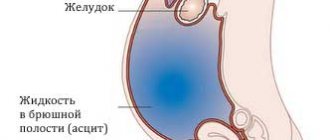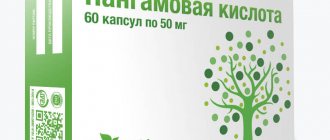Foods Rich in Vitamin C
Vitamin C is found in plant foods - vegetables, fruits, berries. It has always been believed that the highest dosages of vitamin C are found in citrus fruits, and the more acidic the citrus, the more “ascorbic acid” it contains. This is completely wrong!
Firstly, a sour lemon contains one and a half times less vitamin than a sweet orange, and secondly, both fruits contain little of it - about the same amount as apples. There is much more vitamin in dill, walnuts, rose hips, and sea buckthorn. They should be used intensively for viral diseases, instead of endlessly drinking tea with lemon.
Ascorbic acid as a medicine
If there is a lack of vitamin in the body, it is recommended to replenish the supply with medications. Release form:
- dragee;
- pills;
- ampoules;
- powders.
The form of use is determined by the attending physician depending on the nature of the disease. The instructions for use warn of possible side effects if the drug dosage is incorrect.
Ascorbic acid dragees are prescribed to children because they resemble candy and not medicine. Effervescent tablets are popular among professional athletes. One tablet, diluted in a glass of water, replenishes vitamin reserves and invigorates before a grueling workout. The powder is available in sachets.
An injection solution is prepared in ampoules. One ampoule contains 50 mg and 100 mg, which allows you to administer the required dose of the drug at a time.
An overdose negatively affects the mucous membrane of the stomach and digestive tract as a whole. Pregnant women are at risk because the metabolism between the mother and fetus is disrupted. As a result, the child develops allergies, and the mother may develop problems with the gastrointestinal tract.
Increased need for vitamin C
In pregnant women, the need for it increases by about 10 mg, and in nursing women - by almost half. Also, increased amounts of vitamin C are needed by smokers and those who are exposed to harmful occupational factors.
During acute illnesses, it is permissible to consume up to 10 daily norms at a time! When recovering from various diseases, under high loads, in the cold season, you also need more vitamin C than usual.
Although many situations require increased use of vitamin C and the use of high dosages, it is not recommended to increase doses indefinitely. When consuming more than 2 g of the substance per day, a toxic effect of ascorbic acid on kidney tissue is observed.
Description of chemical properties
The chemical formula of the substance is C6H8O6.
The molecule consists of a furan five-membered heterocycle with an oxygen atom and one double bond. The structure of the acid resembles a glucose molecule. Vitamin C is water soluble and also dissolves in alcohols. In its pure form it is a white powder with a sour taste. The melting point of the substance, which is accompanied by the transformation of the molecule, is about 190°C.
The beneficial effect of C vitamins is due to the presence of two free carbon atoms in the formula, which can be used for redox reactions in which ascorbic acid acts as a coenzyme.
Biological role of vitamin C
The functions of vitamin C are numerous, and they make its use very important for maintaining and improving health. The meaning of ascorbic acid is as follows:
• Is an antioxidant. This means that the substance resists the destructive process of lipid peroxidation in tissues, protects the body from diseases and aging. • Strengthens the immune system, increases its “alertness” against harmful microorganisms, especially viruses. • Promotes the full formation of connective tissue, strengthens bones and joints. • “Helps” folic acid, vitamin A, and iron to be absorbed and exhibit their effects. • Improves skin condition. Thanks to its independent anti-inflammatory effect, it reduces the severity of inflammation in acne and acne. • Reduces bleeding, strengthens blood vessels. • Prevents the rapid development of atherosclerosis, inhibits the growth of cholesterol plaques in blood vessels. • Reduces the toxicity of alcohol, improves detoxification, neutralization of many toxic and harmful substances: components of tobacco smoke, substances that pollute water and air, drug metabolites, etc. • Reduces the negative impact of stress on health. • Accelerates the restoration of various tissues when they are damaged. • Has a brightening effect on the skin.
How is it useful?
Any vitamin is an extremely useful substance for the human body. Only each vitamin has its own role. Everyone knows that vitamin C is necessary for immunity - it has a general strengthening and preventive effect against colds and ARVI. But what else does it do and what does it affect?
Of course, the role of vitamin C in the human body is not limited to this effect alone. The benefits it brings are incredibly great. It is hardly possible to list all its beneficial properties. But it is worth noting that the effect that ascorbic acid has on the entire body is very versatile.
Controls the following processes in the body:
- immune response and immunobiological reactions;
- condition of the vascular wall;
- stress resistance of the body as a whole and the stability of the neuropsychic reaction separately;
- blood pressure and cholesterol levels;
- blood clotting, liver glycogen reserves;
- allergic reactions;
- diseases of the gastrointestinal tract;
- protection of the oral cavity, in particular the gums, as connective tissue;
- lipid metabolism;
- cleanliness and smoothness of the skin;
- healing of wounds and fractures;
- hair condition;
- visual functions;
- cognitive functions;
- quality of sleep, etc.
Expert opinion
Despite the impressive list of beneficial properties, ascorbic acid can cause some harm to health. We are talking about its excessive consumption, consumption on an empty stomach (can cause irritation of the gastric mucosa), in the presence of gastritis, gastric ulcer. “Everything is poison, everything is medicine, both are determined by the dose” Paracelsus.
Vascular surgeon, phlebologist
Osipova Ekaterina Yakovlevna
Ascorbic acid is important for the human body at any age, since it is not synthesized by it. What is vitamin C responsible for? And what does it help to cope with? At an early age, its deficiency can significantly affect the skeletal system. At a later stage, the consequences of the deficiency are more extensive, since the need for the vitamin only increases. After all, in addition to the stress during the work week and the busyness of everyday life, a person does not always lead a healthy lifestyle. And let’s say, if we consider smoking, it incredibly speeds up the process of vitamin breakdown. But first things first.
Let's start with the most important and most well-known to everyone - stimulation of immune activity. The immune system is a kind of line of defense against the harmful effects of infections, bacteria, one’s own cells that have lost their inherent characteristics, etc. In order for the body to be able to give an immune response, there must be an appropriate amount of immune antibodies. This is what vitamins are for. And that is why vitamin deficiency increases the incidence of disease, especially in the autumn-winter season. By taking medications, you can increase the bactericidal parameters of blood serum, stimulate the production of antibodies and the phagocytic activity of leukocytes, which is responsible for the level of resistance of the body to foreign microflora.
!
Vitamin C is one of the three most powerful absorbers of free radical aggression (oxidants) in the body from the entire existing vitamin complex.
Along with vitamins A and E, it improves a person’s overall well-being, in particular, it has a beneficial effect on the functioning of the internal organs of the human body. Vitamin C, being an important element of the antioxidant system, neutralizes toxins, increases the synthesis of interferon (Interferonum), stimulates the functioning of nerve cells, and promotes the removal of cholesterol plaques. Due to its antioxidant effect it is widely used:
- in the complex treatment of diabetes mellitus (Diabetes mellītus);
- when reducing intraocular pressure, reducing the risk of developing cataracts;
- to normalize cellular metabolism;
- to reduce the growth of cancerous tumors;
- to prevent heart disease, with increased fragility of blood vessels (bruises appearing on the body for no reason), etc.
In some cases, vitamin C exhibits insufficient independent antioxidant activity, and without combination with minerals and other beneficial substances, it cannot fully protect the body from certain damaging factors. Thus, vitamin C, together with ginkgo biloba, an equally powerful antioxidant, has a beneficial effect on veins, strengthening their walls and on small capillaries, reducing their permeability. The tandem of useful substances improves microcirculation in the vascular bed, promotes the prevention and treatment of vascular diseases. Interacting, these two active components, along with the other ten, are part of the NORMAVEN® foot cream. Specialists from the pharmaceutical company VERTEX worked on the combination of active components. Clinical studies conducted at the State Health Care Institution “City Clinic No. 49”, in the antenatal clinic No. 12, proved the high effectiveness of the product. The effectiveness and safety of use during pregnancy has been clinically proven. Based on the results of testing the drug, no undesirable side effects were found. An improvement in the health of the limbs is observed after just a month of use; the maximum effect is achieved after a three-month course of use. Vitamin C cream provides the necessary daily foot care at home and has the necessary documents and quality certificates.
!
Vitamin C is actively involved in the production of collagen in the body; this role is the most studied.
Collagen is a protein filament that forms the basis of connective tissue, providing its elasticity and strength. Impaired collagen formation causes bleeding gums, poor wound healing, bone lesions, etc. Cartilage affected by arthritis and osteochondrosis loses about 90% of the daily value of nutrients, so it is in dire need of its rapid replenishment. Vitamin C eliminates not only inflammatory, but also age-related causes of bone fragility, promotes the treatment and prevention of joint diseases, having a positive effect on the musculoskeletal system.
Benefits of Vitamin C for Skin
Participation in the synthesis of collagen, as a property of vitamin C, is extremely valued in cosmetology, as it helps maintain the health of the skin, slow down the aging process and the formation of wrinkles. Vitamin C for facial skin is an effective, affordable product that gives youth to the skin of the neck and face:
- has a whitening effect - used to eliminate age spots;
- restores elasticity and firmness;
- protects against the harmful effects of ultraviolet rays;
- improves skin color;
- accelerates post-acne healing;
- eliminates dark circles under the eyes;
- increases the effectiveness of peelings.
There are a great many dosage forms in which ascorbic acid is produced. For cosmetic purposes, powder, tablets, and liquid vitamin C are used in injection solution. Today, anti-aging serum with vitamin C is widely used. It contains the maximum concentration of the vitamin, which allows it to be used in the fight against skin manifestations such as rosacea. Ascorbic acid is widely used in injection mesotherapy procedures. A small amount of active substance is injected into the superficial and middle layers of the dermis (usually vitamin C in combination with vitamin E into the skin. The procedure is quite effective, but has a certain range of contraindications. Less effective than injections, but also gives a positive result - the use of cream , which usually contains 3% ascorbic acid, protects the epidermis from adverse factors and removes toxins.
Expert opinion
Vitamin C controls blood cholesterol levels. Research methods have proven that when a high, clinically dangerous level of cholesterol is reached, the intake of ascorbic acid in the body helps to reduce it. Vitamin C also has an antiatherosclerotic effect. In combination with a bioflavonoid such as rutin, vitamin C strengthens blood vessels, fights varicose veins, and the pathology of hemorrhoidal veins, much more effectively. Many complexes of venotonic vitamins and plant extracts contain both of the above-mentioned active components. Their combination also prevents the process of destruction of a substance important for the cells of the vascular system - hyaluronic acid.
Vascular surgeon, phlebologist
Osipova Ekaterina Yakovlevna
Ascorbic acid can minimize the negative effects on the heart. It reduces blood viscosity, which prevents thrombus formation, and this has a beneficial effect on the functioning of the heart muscle.
Vitamin C has a significant effect on liver function and promotes the restoration of its cells. Activates the pancreas. Ascorbic acid enhances the activity of respiratory enzymes in the liver and increases its potential to cleanse the body. A positive effect of vitamin C on the protein-forming function of the liver was also noted.
The body's regenerative resource increases significantly, skin ulcers and wounds heal faster when vitamins A and C enter the body. The scarring process accelerates, the regeneration period of skin areas affected by burns decreases, and the clinical course of burn disease improves due to the effect of vitamin C.
!
A significant role is played by fortifying the patient in case of cancer and its prevention.
In particular, this applies to tumor formations of the digestive tract, urinary and reproductive systems. A trio of vitamins A, E and C shows good results. From the point of view of evidence-based medicine, they are able to suppress the development of cancer cells with their antioxidant effect. The complex should be taken exclusively under the supervision of the attending physician. Since excess vitamin C, like any other, can affect the course of the tumor.
One of the remarkable properties of vitamin C is its ability to neutralize excessive stress on the psyche and increase stress resistance. Unfortunately, an active lifestyle, busy everyday life, and an abundance of tasks set for oneself do not pass without leaving a mark on the nervous system. At first, there may be a reluctance to eat, then a loss of strength will follow, and you will constantly feel a feeling of drowsiness, fatigue and loss of concentration. In such cases, vitamin C is also effective and will help cope with increased stress. This combination is especially beneficial for health - vitamin C and vitamin B3 (nicotinic acid (Nicotinicum acidum). This combination will actively participate in the synthesis of energy and increase vitality, regulate the process of excitation of the nervous system, relieve signs of fatigue, and protect against physical exhaustion.
Expert opinion
Vitamin C can influence blood quality indicators by protecting hemoglobin from the oxidative process. It also helps preserve iron, converting it into divalent iron, which is better absorbed. Accelerates the maturation of red blood cells.
Vascular surgeon, phlebologist
Osipova Ekaterina Yakovlevna
Ascorbic acid is also valued for its pronounced antitoxic effect against various toxic and harmful substances. Science has established that vitamin C has a neutralizing effect on tuberculosis, diphtheria, dysentery and other poisons of microbial origin. It also has a detoxifying effect on chemical and industrial poisons. Vitamin C forms protection that promotes the normal functioning of internal organs during various types of intoxication.
Vitamin C has a unique relationship with biologically active substances such as hormones. It is indispensable for their production, including increasing the synthesis of adrenaline, which increases heart rate, blood pressure, increases blood flow to muscles, etc.
Ascorbic acid gives a positive effect when used in complex therapy of shock conditions, having a positive effect in traumatic and anaphylactic shock.
The list of useful properties can be long enough. It is widely used in the practices of traditional and folk medicine. Treatment with vitamin C is prescribed both as part of complex therapy and using its healing properties as a single method of therapy. It is actively used in cosmetology and serves as an indispensable component of skin products.
Signs of vitamin C deficiency
Vitamin C deficiency is common and its symptoms are familiar to many people. Among the signs of hypovitaminosis C, there may be such phenomena as a tendency to bleeding gums, easy formation of bruises on the body, frequent incidence of colds, a predisposition to exacerbations of existing chronic diseases, slow healing of injuries and delayed recovery, discomfort in the joints, problematic skin, hair loss, nosebleeds etc.
With a critical deficiency of the vitamin, a disease known as scurvy develops. It is rare in the modern world, but used to be extremely common. Patients experienced frequent bleeding, teeth falling out, and serious damage to joints and bones.
Factors influencing the vitamin C content of foods
Ascorbic acid is a “fragile” vitamin. Upon contact with air, it oxidizes, which leads to some loss of its properties. For this reason, food containing vitamin C is not recommended for long-term storage. Fruit and vegetable juices should be drunk freshly squeezed.
The vitamin is also destroyed when exposed to high temperatures; cooking leads to almost 100% loss of this substance. Therefore, vegetables and fruits should be consumed fresh.
Some of the ascorbic acid is retained in products when frozen; a minimal amount of it “survives” when dried. The destruction of the vitamin is also observed in light. This means that you need to use dark, cool places to store vegetables.
Important fact. The vitamin C content of different products depends greatly on their shelf life. The maximum amount of ascorbic acid is present in ripe, fresh fruits. Meanwhile, kiwis, oranges, and lemons that “come” to our country were collected long before they reached optimal ripeness, and more than 2 months can pass from their collection to consumption. Accordingly, they lose most of their beneficial properties and vitamin C.
As a result, in order to meet the daily requirement for ascorbic acid, a person needs to eat several kilograms of plant foods daily. This is impossible. And this is precisely what leads to the fact that most of us live in conditions of chronic hypovitaminosis and need to take additional dosages of vitamin C.









